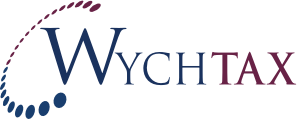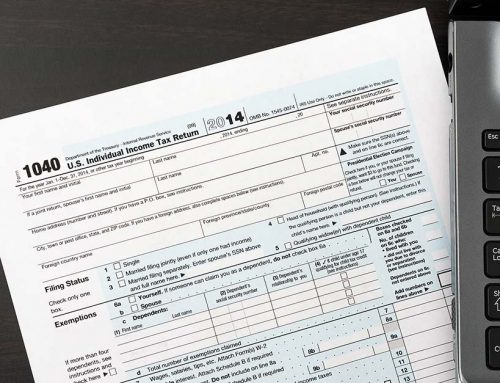There is no question that we are all trying to survive (and, more importantly, thrive) in a time of constant change, adaptation, and oftentimes confusion.
Let us take one thing off your plate and minimize any confusion you may have about new laws affecting small business taxes.
There are a handful of changes stemming from the COVID-19 pandemic that are critical to be aware of in 2020 and beyond. As your trusted CPAs and financial advisors, we’re here to ensure you are fully equipped with the information necessary to make the best tax decisions for your business during this time.
While some of the coronavirus-related changes are now past-tense (i.e., applying to receive a PPP loan), many of the items below will still be pertinent for future use.
- Families First Coronavirus Response Act (FFCRA) employer reimbursement
- Coronavirus Aid, Relief, and Economic Security (CARES) Act
- Applying for Payment Protection Program (PPP) loan forgiveness
- Economic Injury Disaster Loans (EIDL) and how they coincide with the PPP
Families First Coronavirus Response Act (FFCRA)
The FFCRA requires small business employers (fewer than 500 employees) to provide paid sick leave or expanded family and medical leave for reasons related to COVID-19, effective through December 31, 2020.
This includes:
- Two weeks of paid sick leave for an employee advised to quarantine and/or experiencing symptoms of COVID-19 and seeking diagnosis. This is paid at the employee’s normal pay rate.
- Two weeks of paid sick leave for an employee with a legitimate need to care for (a) someone who has been advised to quarantine or (b) a child whose school or care facility is unavailable due to COVID-19. This is paid at two-thirds of the employee’s normal pay rate.
- Up to 10 additional weeks of paid extended family and medical leave for an employee with a legitimate need for leave to care for a child whose school or care facility is unavailable due to COVID-19. This employee must have been employed for at least 30 days and is paid at two-thirds of the employee’s normal pay rate.
Important details:
- Two weeks paid sick leave is equivalent to 80 hours for full-time employees (maximum of $511 per day, or $5,110 total over the entire paid sick leave period) and the equivalent of normal hours worked during a two-week period for part-time employees (maximum of $200 per day, or $2,000 over the entire two week period).
- Employees are not eligible for paid sick leave if they are able to telework.
- Employers with 50 or fewer employees may claim an exemption from these stipulations if providing them would jeopardize the operation of the business.
- This needs to be coordinated with PPP loan forgiveness.
What does this mean for your taxes?
In exchange for providing paid sick leave and extended family and medical leave to your employees, the FFCRA allows you to be reimbursed dollar-for-dollar on your quarterly federal tax return (Form 941) with refundable tax credits. These tax credits include your share of the Medicare tax on the employee’s wages and the cost of maintaining healthcare coverage for the employee during leave.
Coronavirus Aid, Relief, and Economic Security (CARES) Act
The CARES Act, passed in March, includes a whole slew of tax provisions within its hundreds of pages, so let’s break it down and pinpoint the most relevant sections for small business owners.
- Payroll tax credit refunds — The refundable tax credits of the FFCRA (as mentioned above) are able to be refunded in advance using Form 8974 from the IRS.
- Employee retention credit* — This provides employers with a credit equal to 50% of qualified wages (up to $10,000) for each employee. So, who is eligible?
- Employers whose business operations are fully or partially suspended due to government orders limiting travel, meetings, or commerce.
- Employers with gross receipts equaling less than 50% of those in the same quarter of the previous year. They are eligible until their gross receipts surpass 80% of their gross receipts for the same quarter of the previous year.
- Charitable deductions — This bill raises charitable deductions for 2020 to a maximum of $300. It also changes adjusted gross income (AGI) limitations to 25% of taxable income for corporations.
- Payroll tax delay — This allows 50% of 2020 employer payroll taxes to be delayed until December 31, 2021 and the remaining 50% until December 31, 2022.
*Note: The employee retention credit cannot be claimed if an employer has received a PPP loan.
How to apply for Paycheck Protection Program (PPP) loan forgiveness
If you have received the PPP loan, forgiveness will be based on whether you have maintained or quickly rehired employees, as well as maintained salary levels.
To apply for loan forgiveness, please contact the bank that lent you the funds.
Economic Injury Disaster Loans (EIDL)
While the EIDL Advance program is now closed for application and funds have been completely allocated, the EIDL Loan applications are still being accepted and processed. Here’s what you need to know about both.
- EIDL Advance — If you received an EIDL Advance (grant), it does not have to be repaid. However, if you received an EIDL Advance in addition to the PPP loan, the amount of the Advance will be subtracted from your PPP loan forgiveness.
- EIDL Loan — Small businesses are still able to apply for this low-interest loan to use for working capital and operating expenses that would have otherwise been met if not for COVID-19. Collateral is required for loans over $25,000 and the loan is not forgivable. The loan maturity is 30 years and payments can be deferred for the first year, although interest still accrues.
You still drive, we still navigate
As small business taxes continue to fluctuate due to this pandemic, Wych Tax will continue to provide you with the most up-to-date, relevant information to keep your business running smoothly. Our priority is to be your one-stop-shop for tax information, especially in such a unique environment.
If you have any questions that remain unanswered, please reach out to us at (970) 223-0792 or by visiting our website to schedule an appointment as we offer free consultations outside of tax season.






